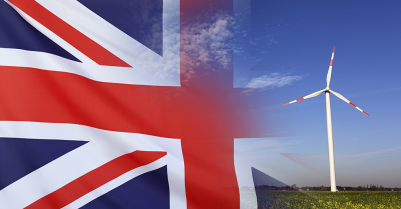-
View article
 #Economy
#EconomyChina: confidence, price war and credibility are the watchwords in this early part of the year
2024/03/26
- 2012/02/23
- 3 min
- 0
Crédit Agricole Group performed well in 2011 against an adverse business environment
RichText template tag encart is not configured
RichText template tag encart is not configured
RichText template tag encart is not configured
RichText template tag encart is not configured
RichText template tag encart is not configured
Groupe Crédit Agricole
Crédit Agricole Group generated net income Group share of 812 million euros in 2011. This reflects a resilient operating performance which enabled the Group to absorb the costs associated with Greece, the costs of the adjustment plan implemented in the autumn of 2011 and the goodwill impairment charges announced on 14 December 2011.
In 2011, Crédit Agricole Group’s businesses operated in a macroeconomic environment which significantly deteriorated during the second half of the year, due to the slowdown in the European economies, the downgrades in European sovereign debt ratings, a particularly difficult situation in Greece and tensions in the financial markets. The acceleration of the implementation of Basel III rules and the more stringent capital ratio requirements also contributed to this difficult climate.
Jean-Marie Sander, Chairman of Crédit Agricole S.A., underlined that: ”Against this backdrop, as the leading provider of financing to the French economy, the Group showed that it is actively committed to supporting the economy, with 96 billion euros in new loans originated by its retail banks through the Regional Banks and LCL.”
This momentum was reflected across all of the Group's business lines (with the exception of Emporiki), with revenues increasing by 2.7% year-on-year to over 35 billion euros. The Regional Banks, among others, continued to support all customer segments both in lending, with the residential mortgage loan book increasing by 5.7%, and in loans to business, which grew by 4.2% over the year. They also continued to boost their on-balance sheet deposits (up 6.8%).
After a 3.7% increase in expenses (including expenditure for the NICE project which aims to implement a single common information system for the Regional Banks), gross operating income rose by 1.1% year-on-year in 2011 to 13.5 billion euros.
The 29.2% increase in the cost of risk mainly reflects the impairment of 74% on average on Greek government bonds.
The sharp drop in pre-tax income (40%) and in net income translate goodwill impairments and mark-downs in the value of a number of equity affiliates.
In the area of solvency, the EBA ratio for Crédit Agricole Group was 9.6% at 31 décember 2011. Core Tier 1 unfloored ratio reached 10.2% down 20 points from 30 September 2011 due primarily to the implementation of CRD3. After application of the floor, the Core Tier 1 ratio Crédit Agricole Group rose to 9.0%.
Crédit Agricole S.A.
Crédit Agricole S.A.'s Board of Directors, chaired by Jean-Marie Sander, met on 22 February 2012 to review the accounts for 2011.
Net income Group share amounted to -1,470 million euros. Jean-Paul Chifflet, Chief executive officer of Crédit Agricole S.A., indicated that this result reflects a satisfactory operating performance despite the deterioration in the global context. Above all, it reflects the substantial impact of impairment on Greek government bonds, the situation of Emporiki, and the consequences of the adjustment plan announced on 14 December 2011 aimed to adapt to the new environment, namely asset write-downs.
“Excluding the costs of the adjustment plan and those relating to Greece, net income Group share was 3,922 million euros. This reflects a 4.9% rise in revenues, controlled costs (up by 0.4%), a 13.2% increase in gross operating income and an 11.3% increase in the cost of risk”, commented Jean-Marie Sander, Chairman of Credit Agricole S.A.
The retail banking and savings business lines showed an increase in their revenues and profitability, with net income Group share rising by 3.4% in French retail banking, by 0.9% in Asset management (Amundi), by 15.1% for CACEIS and by 5.9% in Private banking. Two business lines have entered into a refocusing phase since September – Corporate and investment banking and Specialised financial services – but have nonetheless delivered a satisfactory performances over the full year.
In Greece, the situation continued to deteriorate steadily over the year. As a result, Emporiki's operating losses increased. Measures were taken to reduce the level of funding that Emporiki receives from Crédit Agricole S.A.: this was halved over nine months to 5.5 billion euros at end-December 2011. Moreover, the residual goodwill on Emporiki and part of the stock of deferred tax assets were impaired. Lastly, Crédit Agricole S.A. took an average write-down of 74% on Greek government bonds held by the Group through both insurance and Emporiki. In all, the Greek crisis cost 2,378 million euros in net income Group share.
Following last summer's events in the financial markets, Crédit Agricole S.A. decided to implement a plan to reduce its level of debt by 50 billion euros between June 2011 and December 2012: this was completed by the adjustment plan announced in December, for which most staff-related costs were provisioned in the fourth quarter of 2011 (482 million euros).
The adjustment plan aims to rationalise Crédit Agricole S.A.'s portfolio of business activities, particularly in Corporate and investment banking which is refocusing on distribution and services to corporate clients. This entails a geographical refocusing and the disposal of certain operations, including equity derivatives and commodities trading. As a result, Corporate and investment banking will reduce its balance sheet, adjust its cost base and adapt its business model to generate income in a restrictive environment, notably by increasing the share of commissions and fee income in its revenue mix. Likewise, the consumer finance, lease finance and factoring businesses will sell a number of loan portfolios.
Crédit Agricole S.A. realised 120% of its 2011 medium and long-term market issue programme, or 4.4 billion euros more than its initial programme. The 2012 issue programme will raise 12 billion euros in the markets and has already been completed up to 37%. In the second half of 2011, short-term debt fell by 64 billion euros to 106 billion euros. In the same time, liquidity reserves were replenished in the fourth quarter of 2011 by 7 billion euros, and amounted to 110 billion euros, excluding deposits with Central banks.
Given the general context and the new prospects for the business lines undergoing adjustment, the Group recognised goodwill impairment in the fourth quarter of 1.3 billion euros, in addition to 1.2 billion euros of impairment on the value of a number of minority equity stakes and technical goodwill impairments (net income Group share impact).
Jean Paul Chifflet, Chief Executive Officer of Credit Agricole S.A., highlighted that “On the whole, Crédit Agricole S.A.'s solid fundamentals, coupled with the rapid implementation of measures under the adjustment plan, will give the Group the means to cope with the new economic and financial framework.”
The Board of Directors reaffirms its decision, announced mid December, not to propose a dividend payment for 2011 at the Annual General Meeting.
Social and environmental responsibility
Following its good performance in the latest Sustainalytics rankings (No. 16 out of 156 rated financial institutions worldwide) at the end of 2011, Crédit Agricole S.A. gained admittance to the Stoxx Global ESG Leaders index for the first time. Crédit Agricole S.A. is now included in four major social responsibility indices: the ASPI Eurozone, the FTSE4Good, the Dow Jones Sustainability Index (DJSI) and the Stoxx Global ESG Leaders indices.
The Group is taking every step to ensure that its social and environmental responsibility is a key part of its corporate life. In 2011, Crédit Agricole S.A. launched its RSE (economic, social and environmental responsibility) initiative, entitled FReD, as announced in its Commitment 2014 Plan. FReD is an undertaking founded on the three pillars of RSE which encourages employees across the group to commit to their fulfilment of these pillars within the company. Each division has stated its ambitions and progress targets, which will be evaluated and marked by an independent auditor. The objective is for FReD to enable the calculation of a performance index for the Crédit Agricole S.A group, which will be taken into account when assessing the variable compensation of managers. In 2011, FReD concerned the following businesses: Crédit Agricole S.A., LCL, Amundi, Crédit Agricole CIB, CA-CF, CA Assurances, CA Private Banking, CAL&F, CACEIS and Cariparma.
In 2011, Crédit Agricole S.A also signed a partnership agreement with Livelihoods, a carbon credit fund aimed at rural communities of Southern countries, which promotes the restoration and preservation of natural ecosystems, forestry and soil restoration through sustainable agricultural practices and projects accessing rural energy without deforestation.
Finally, Crédit Agricole S.A and the 39 Regional Banks also demonstrated social solidarity through means such asproviding a million meals through Restos du Cœur and increasing their donation by 10 million euros to the Fondation Crédit Agricole Pays de France, the longest-standing corporate foundation for public service in the country, with the aim of supporting projects associated with the cultural, historic or economic legacy of regional France.
...
Read the press release ( - 244.21 ko)
More (+)




